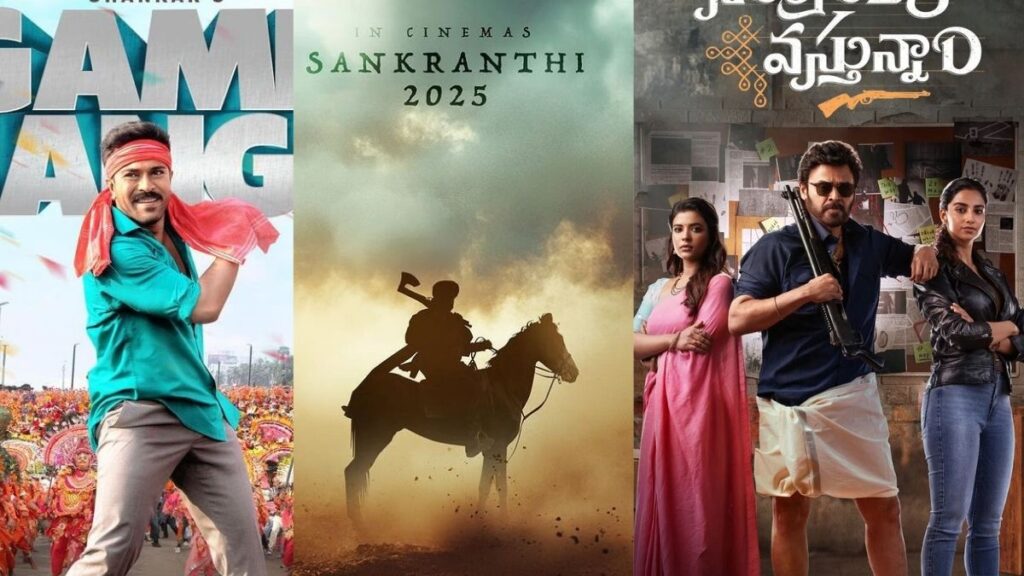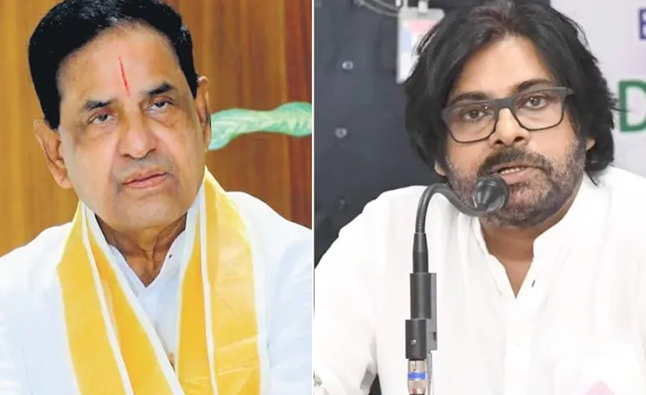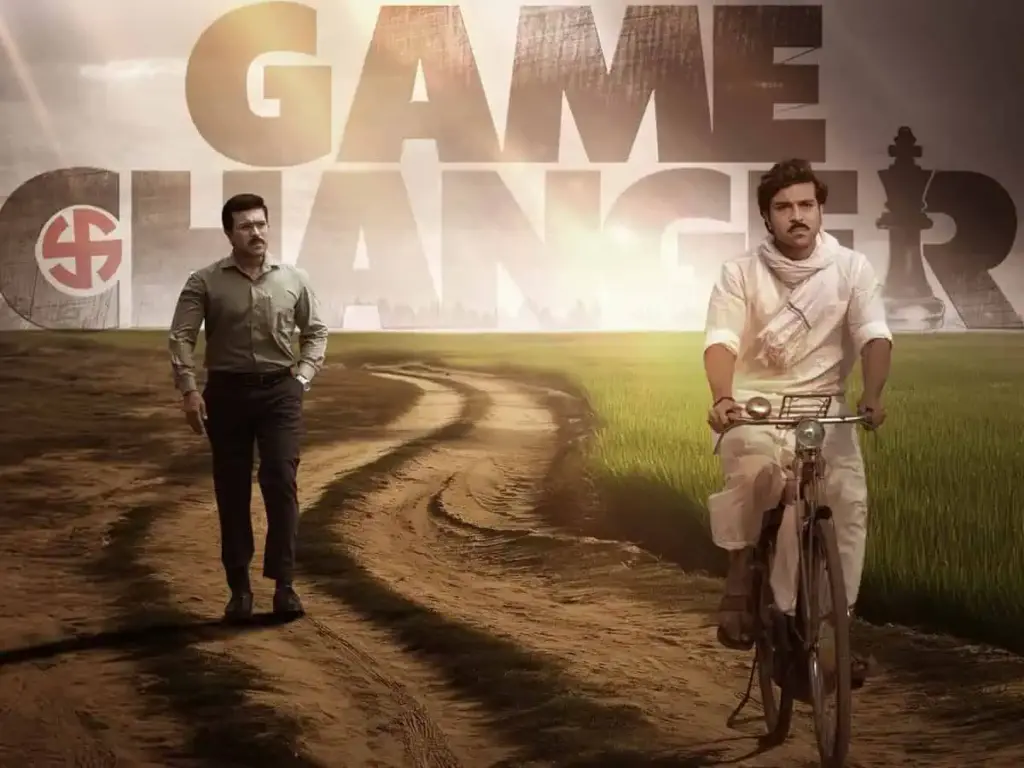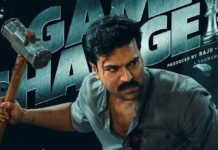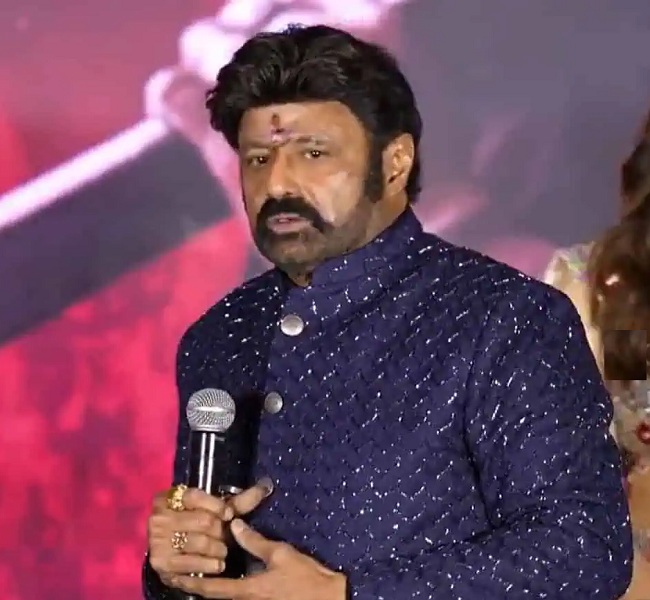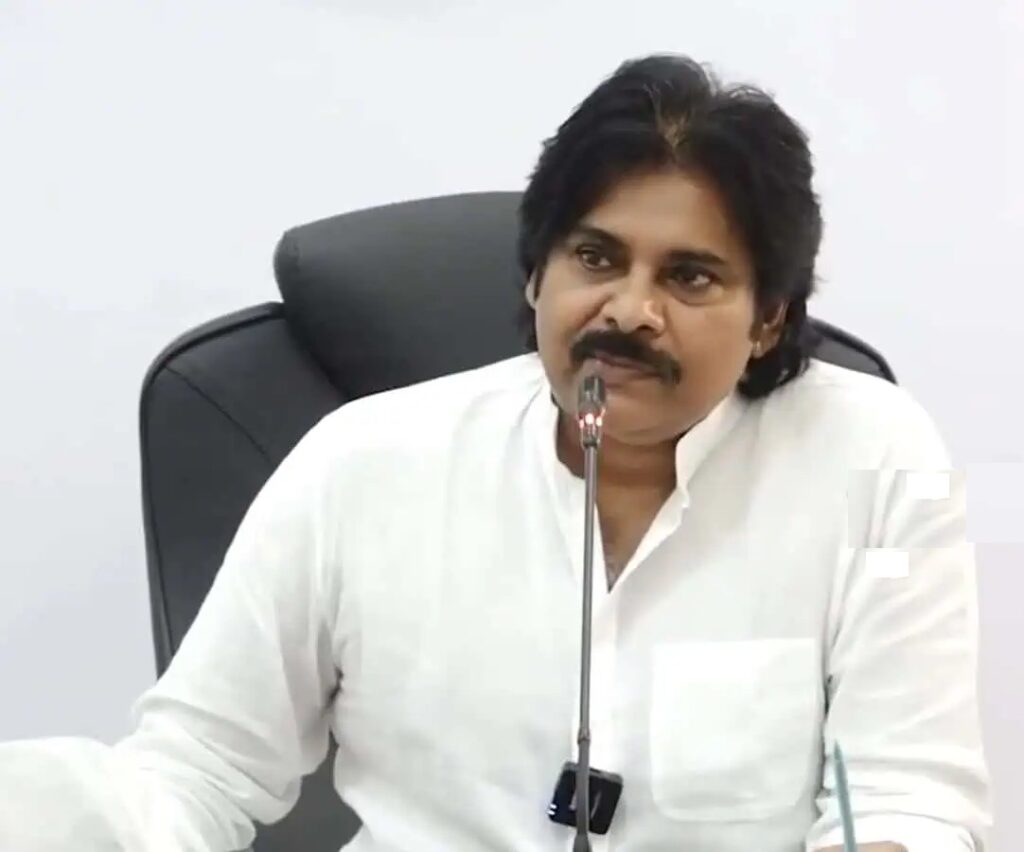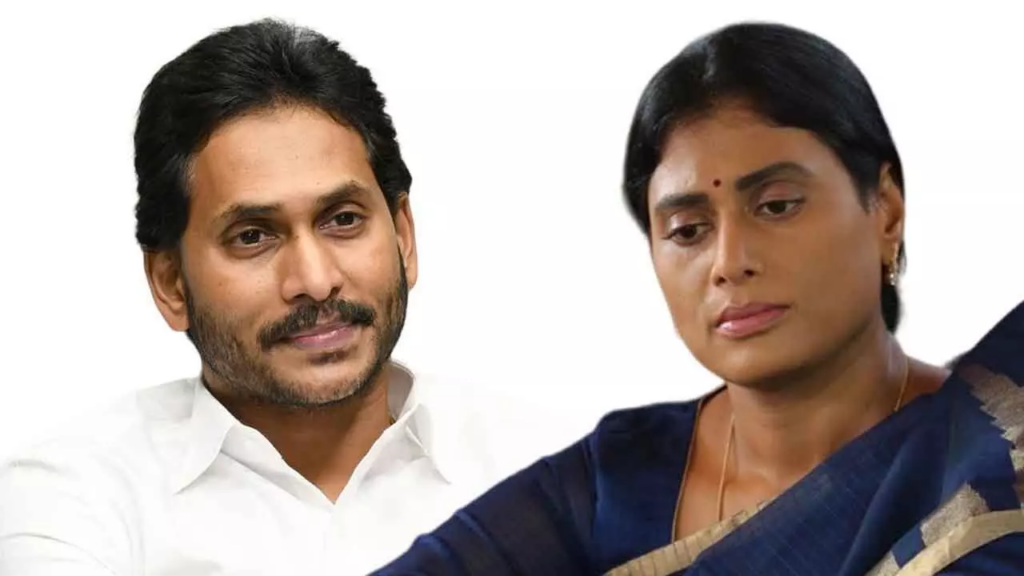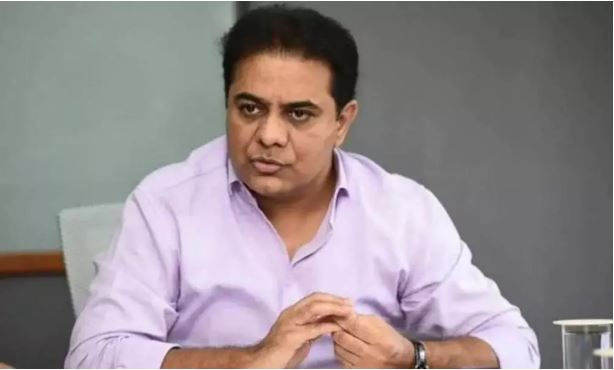Watch Congress leaders’ deeksha just drama – AP minister Devineni Uma
Recent Random Post:
Game Changer Review: A Mixed Bag with Sparks of Brilliance
It’s been six years since Ram Charan delivered a solo lead film in theatres. Following the global phenomenon of RRR, he took an extended cameo in the underwhelming Acharya and embarked on an ambitious project, Game Changer, with legendary Tamil filmmaker Shankar Shanmugam. However, the film faced significant delays due to Shankar’s commitments to Indian 2. After nearly three years of production, Game Changer has finally hit the screens. Does it deliver on its promise? Let’s analyze.
Plot Overview
Ram Nandan (Ram Charan), a newly appointed district collector in Visakhapatnam, embarks on a mission to eliminate corruption and lawlessness in his district. This puts him at odds with Mopidevi (S. J. Suryah), an ambitious cabinet minister and son of the state’s ruling Chief Minister, Bobbili Sathyamurthy. A sudden turn of events involving Sathyamurthy’s demise and his cryptic last wish sets off a chain reaction. As Mopidevi eyes the Chief Minister’s chair, long-buried secrets involving Ram Nandan, Appanna, and Parvathy (Anjali) come to light, forming the crux of the story.
Performances
- Ram Charan shines as Appanna, delivering a powerhouse performance in the 20-minute flashback sequence that forms the emotional backbone of the film. His dual portrayal of the flamboyant Ram Nandan adds style, swag, and electrifying dance moves, sure to delight his fans.
- S. J. Suryah brings a blend of menace and humor as Mopidevi, excelling particularly in his confrontations with Ram Charan in the second half.
- Anjali gives a standout performance as Parvathy, emoting with conviction and leaving a lasting impact during the flashback sequence.
- Kiara Advani, as Ram Nandan’s love interest, has little to work with, and her character feels outdated and underwhelming despite her screen presence in songs like Dhop.
- Supporting actors like Jayaram and Sunil generate occasional laughs, while Srikanth and Rajeev Kanakala perform adequately in pivotal roles. Unfortunately, veterans like Brahmanandam and Vennela Kishore are underutilized in insignificant parts.
Technical Aspects
- Music: Thaman’s background score elevates several sequences, masking narrative shortcomings, particularly in the first half. Tracks like Arugu Meedha, Konda Devara, and Dhop are visually and musically impressive.
- Cinematography: Thirunavukarasu excels in capturing the grandeur of the flashback portions but falters in the Jaragandi Jaragandi song, where the visuals fail to do justice to the massive set.
- Editing: Shameer Muhammed and Ruben could have trimmed repetitive sequences and the unnecessarily prolonged climax.
- Production Values: Dil Raju spares no expense, and the lavish budget is evident, especially in the visually extravagant songs and set pieces.
Strengths
- Ram Charan’s performance as Appanna
- The engaging 20-minute flashback sequence in the second half
- Thaman’s impactful music and background score
- Entertaining moments between Ram Nandan and Mopidevi
- High production values
Weaknesses
- Outdated and formulaic first half
- Weak, cliched writing
- Dragged-out climax with abrupt editing
- Poor choreography in Jaragandi Jaragandi
- Lack of emotional depth in key sequences
- Underwhelming execution of Kiara Advani’s character
- A predictable storyline with a sense of déjà vu
Analysis
Shankar, once known for seamlessly blending grandeur with socially relevant themes, struggles to recreate his golden touch. While the flashback offers a glimpse of his brilliance, much of the film feels like a rehash of his previous works. Despite Ram Charan and S. J. Suryah’s efforts, the screenplay relies heavily on dated tropes, diluting the overall impact.
The film’s second half fares better, with engaging moments and emotional highs, but the drawn-out climax and redundant sequences hamper the pace. Shankar’s reliance on formulaic storytelling limits what could have been a game-changing narrative.
Verdict
Game Changer is a visually grand spectacle with moments of brilliance, thanks to Ram Charan, S. J. Suryah, and Thaman’s music. While it falls short of reclaiming Shankar’s lost glory, it offers enough to keep Mega fans entertained during the festive season.
Bottom Line: A Mixed Bag with Sparks of Brilliance

